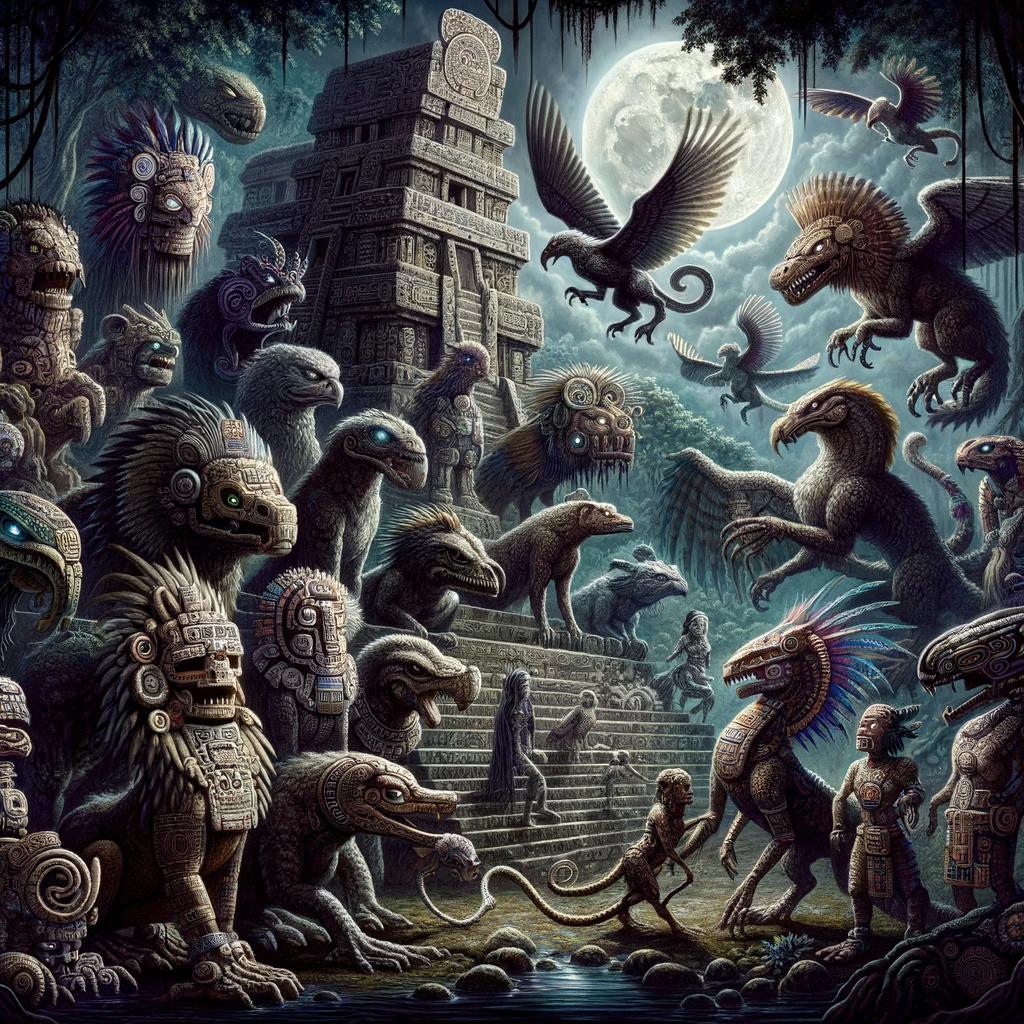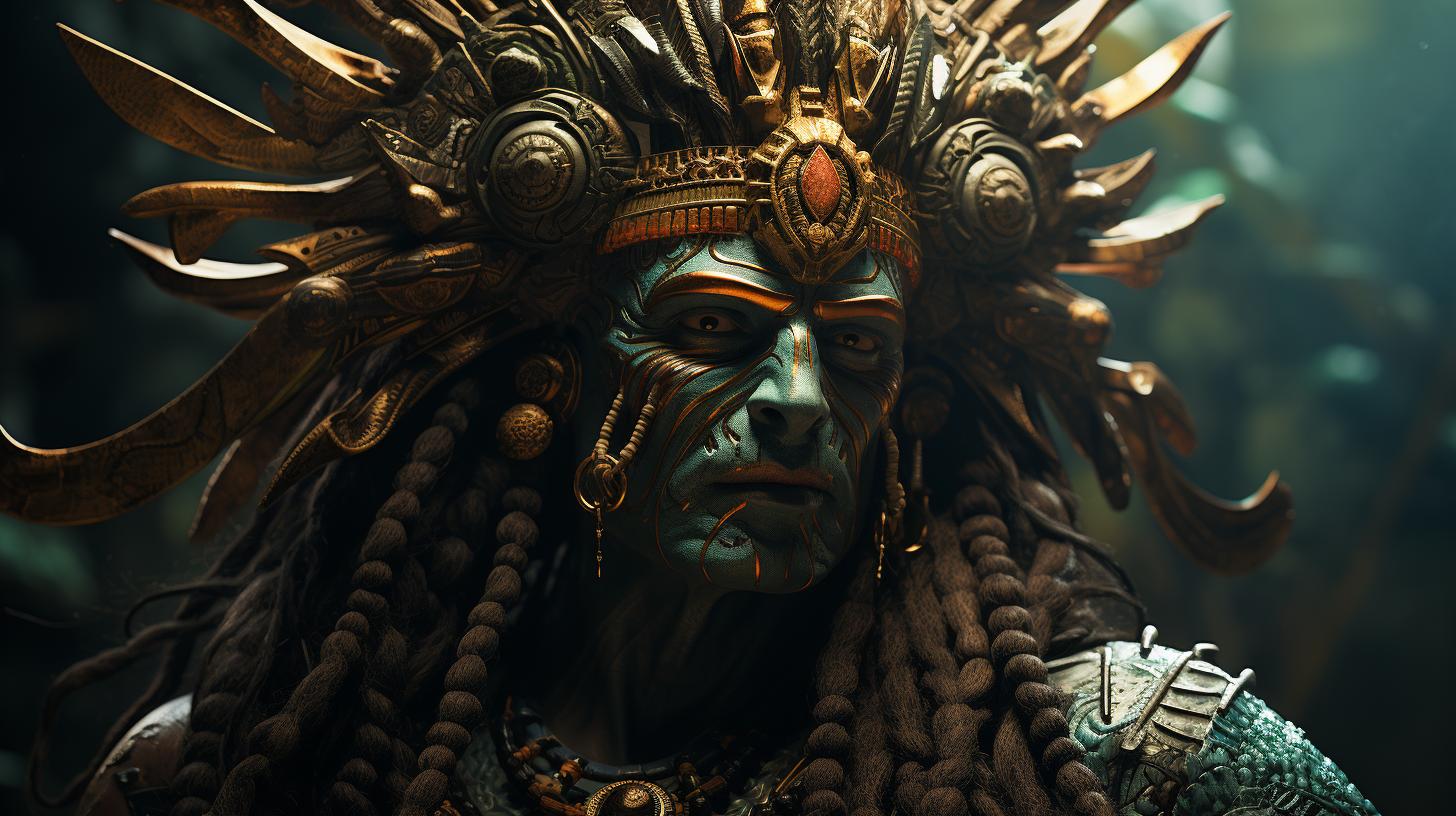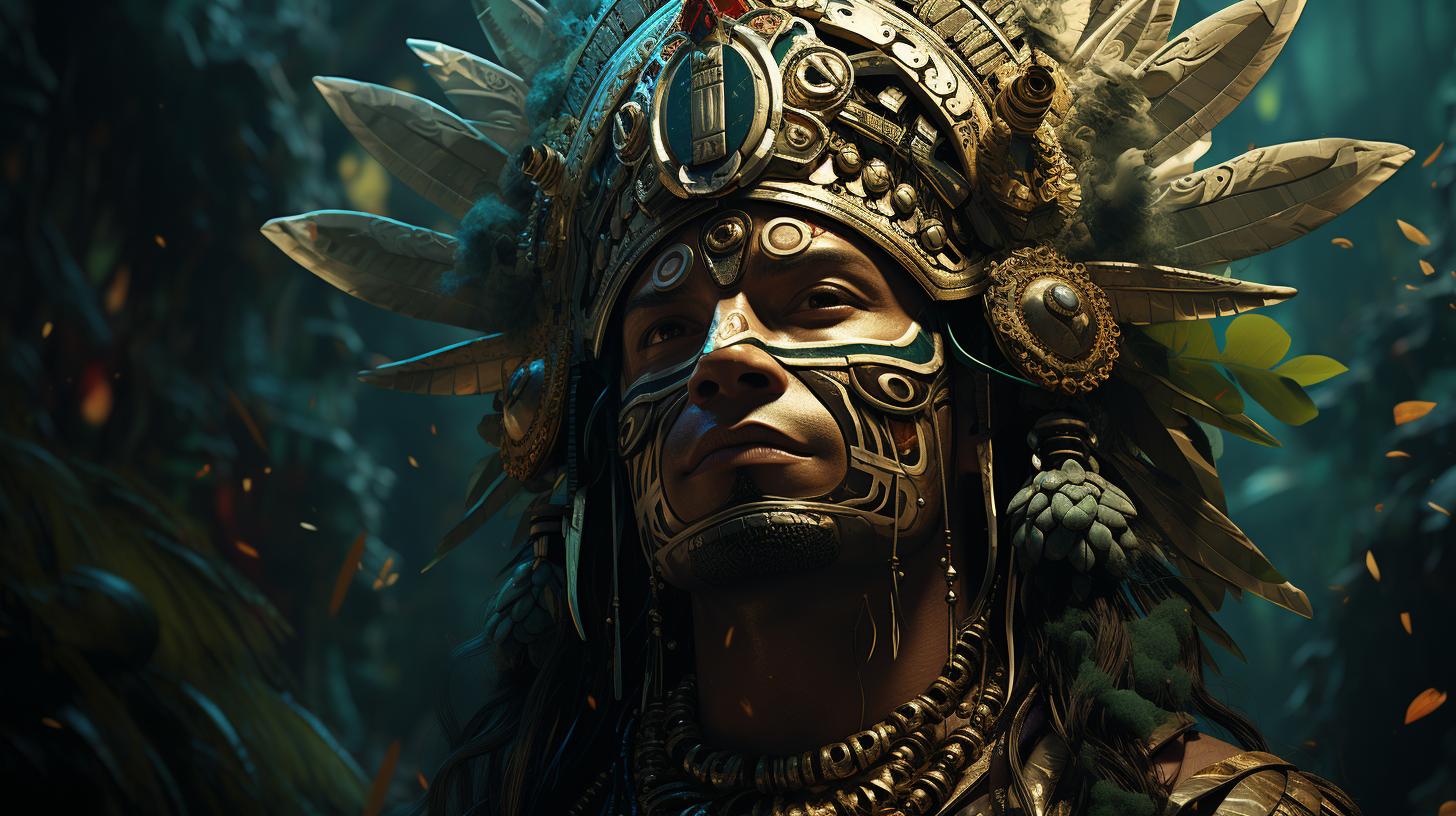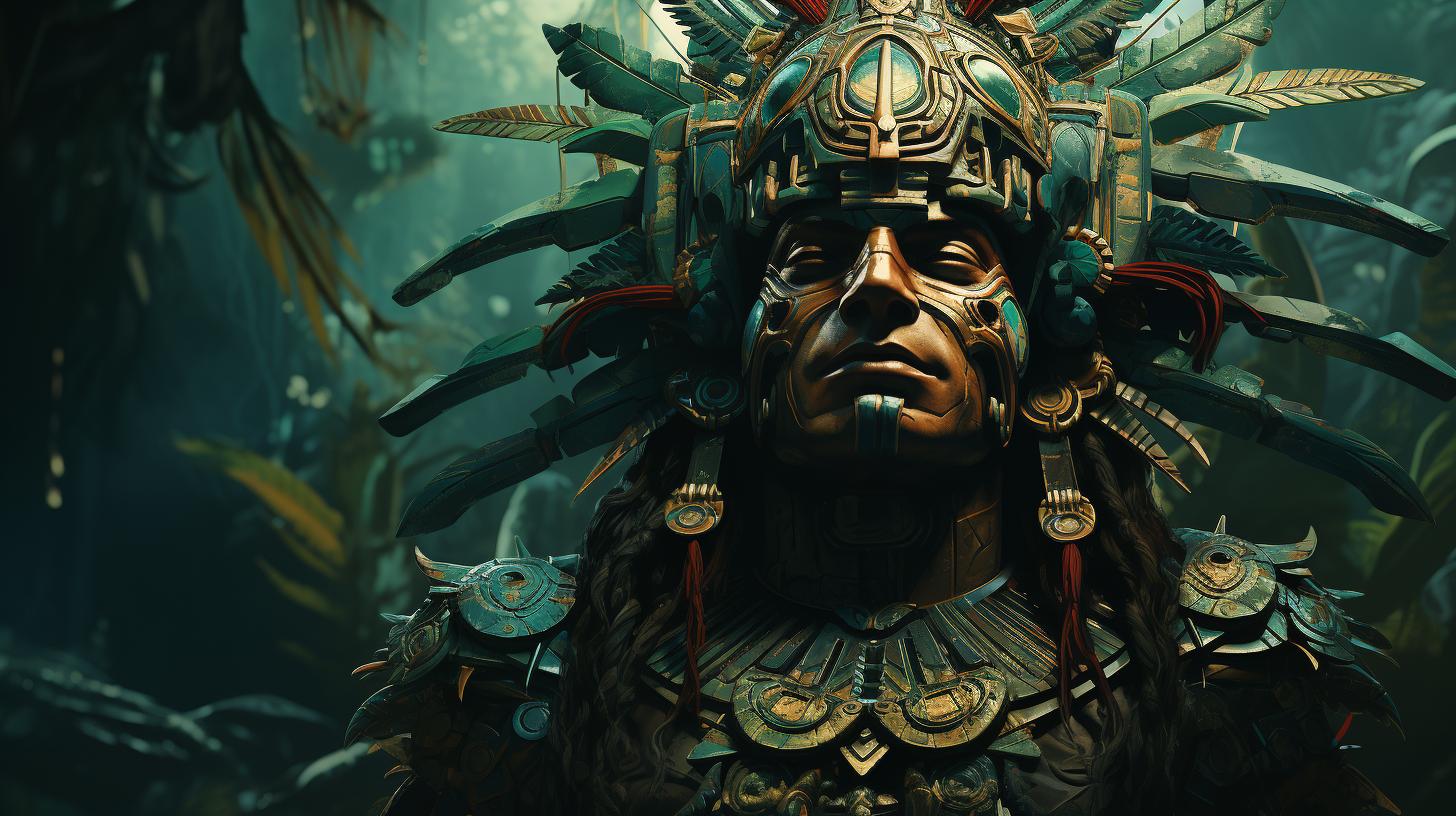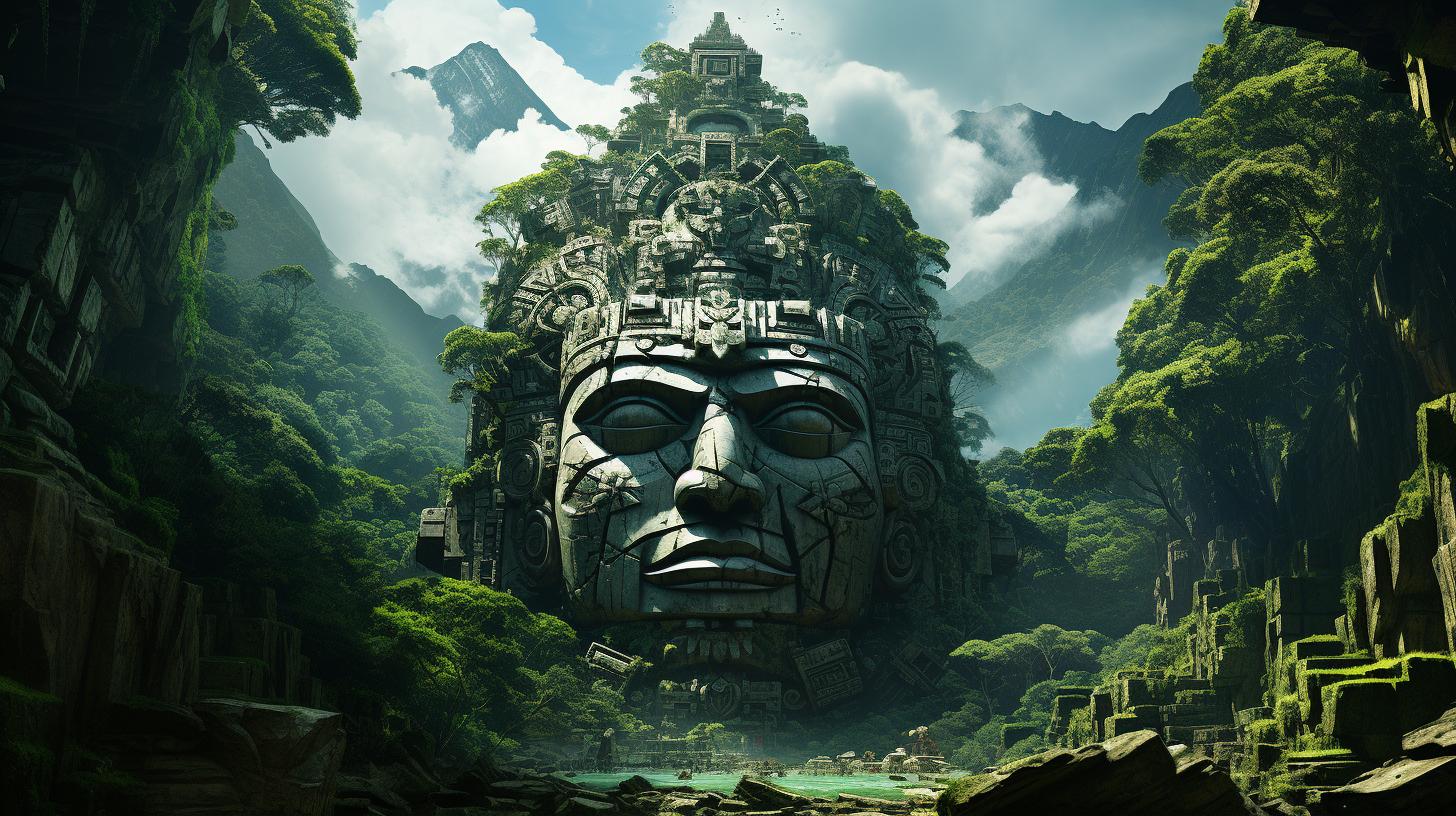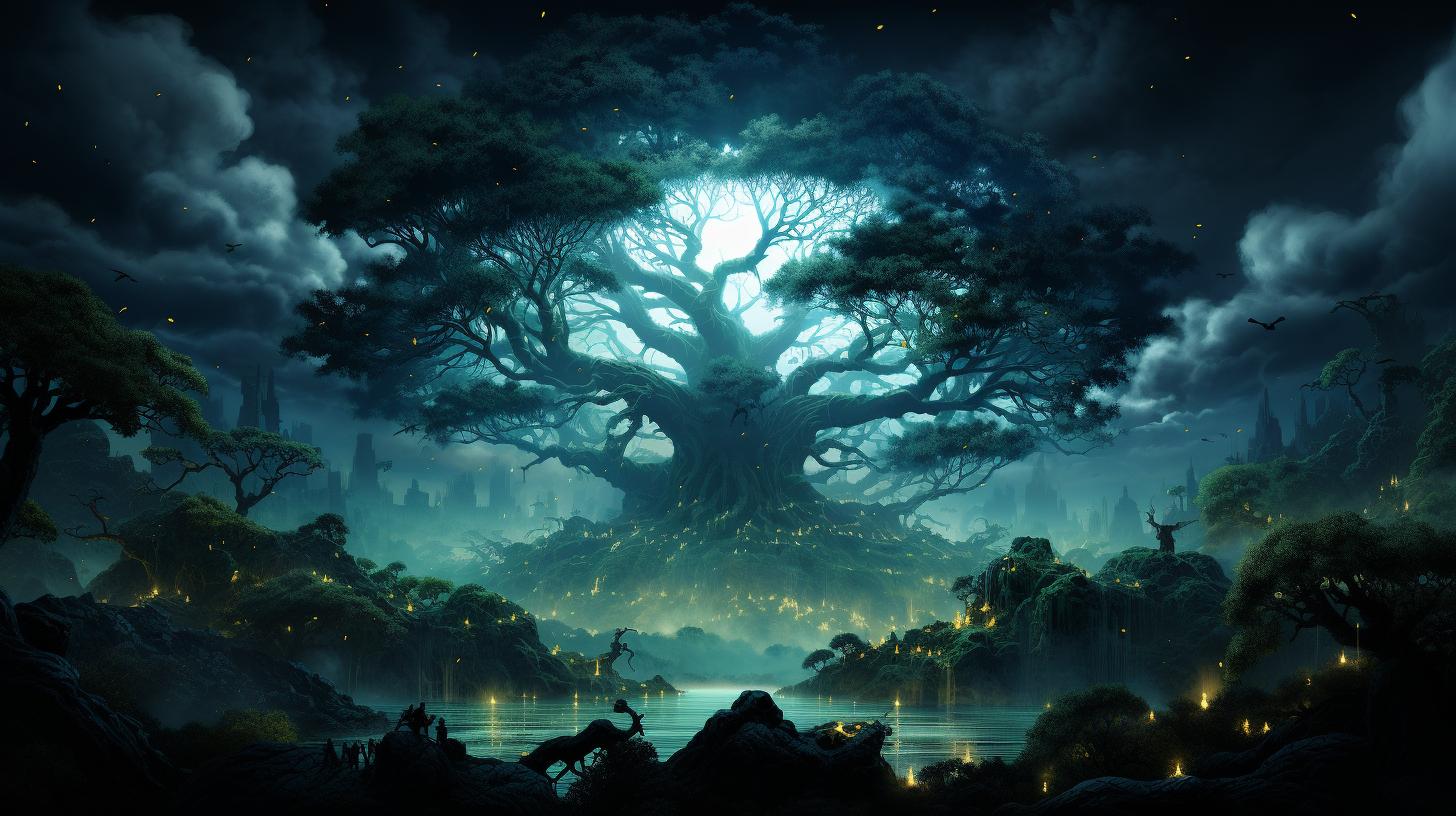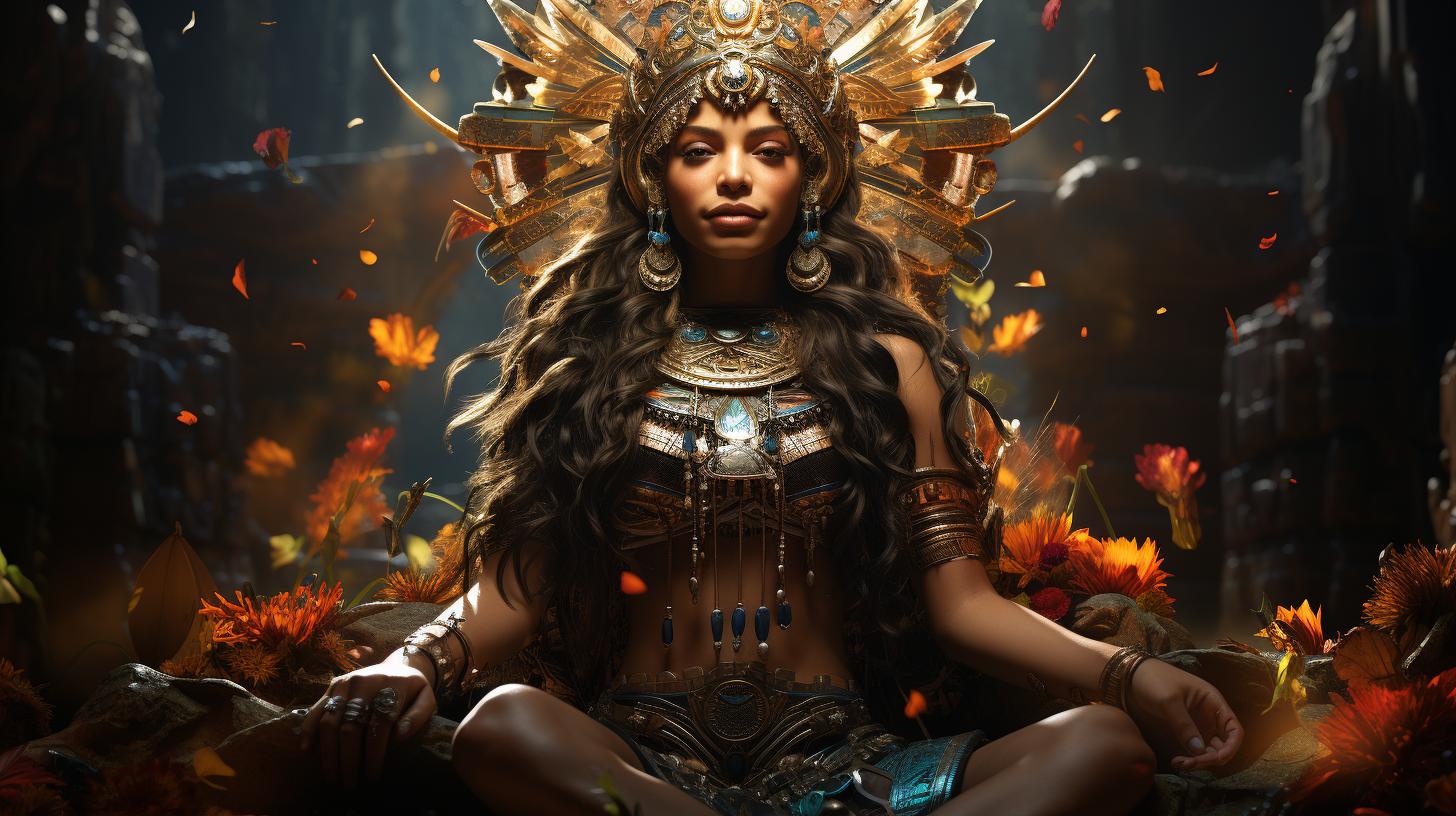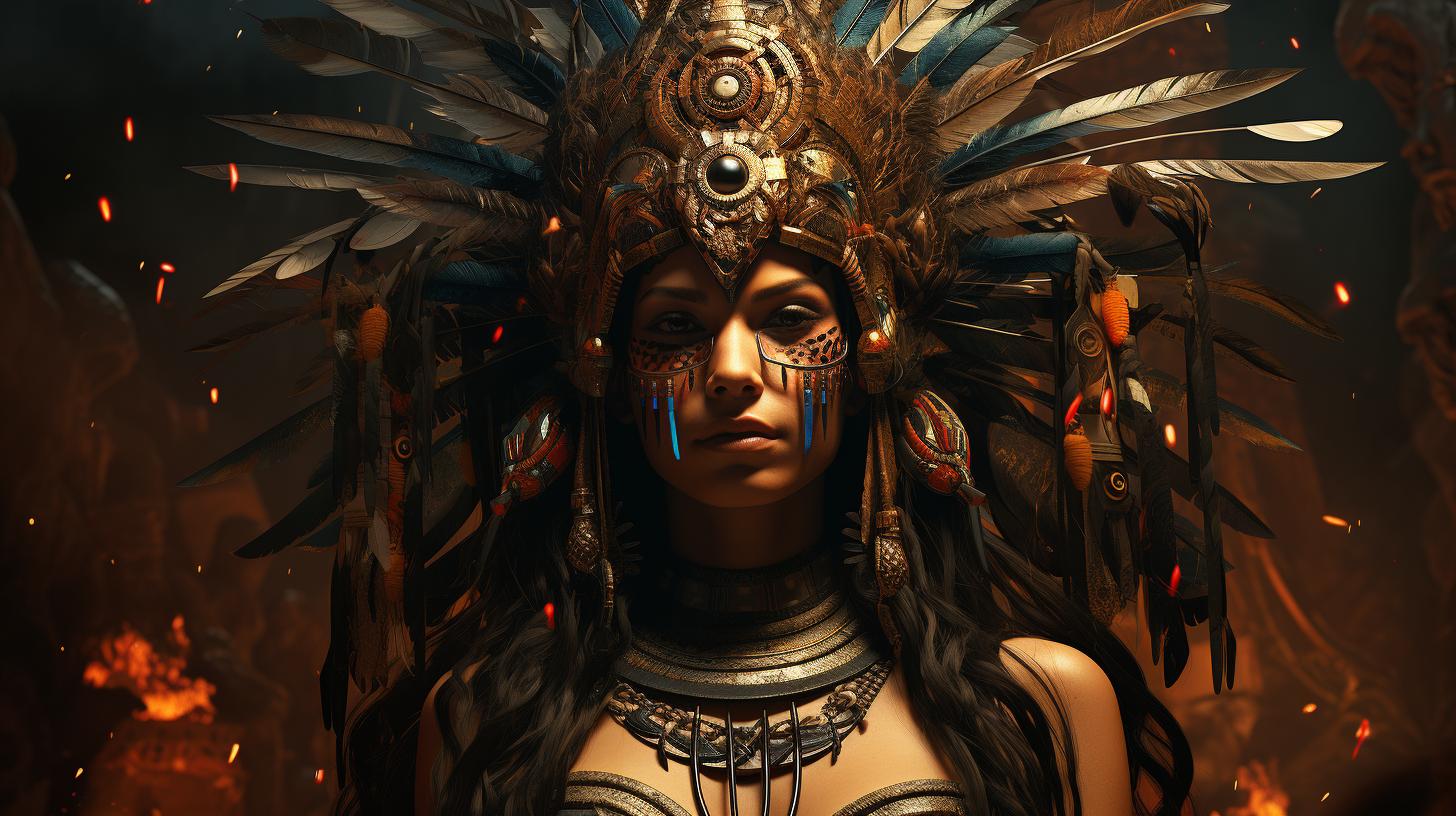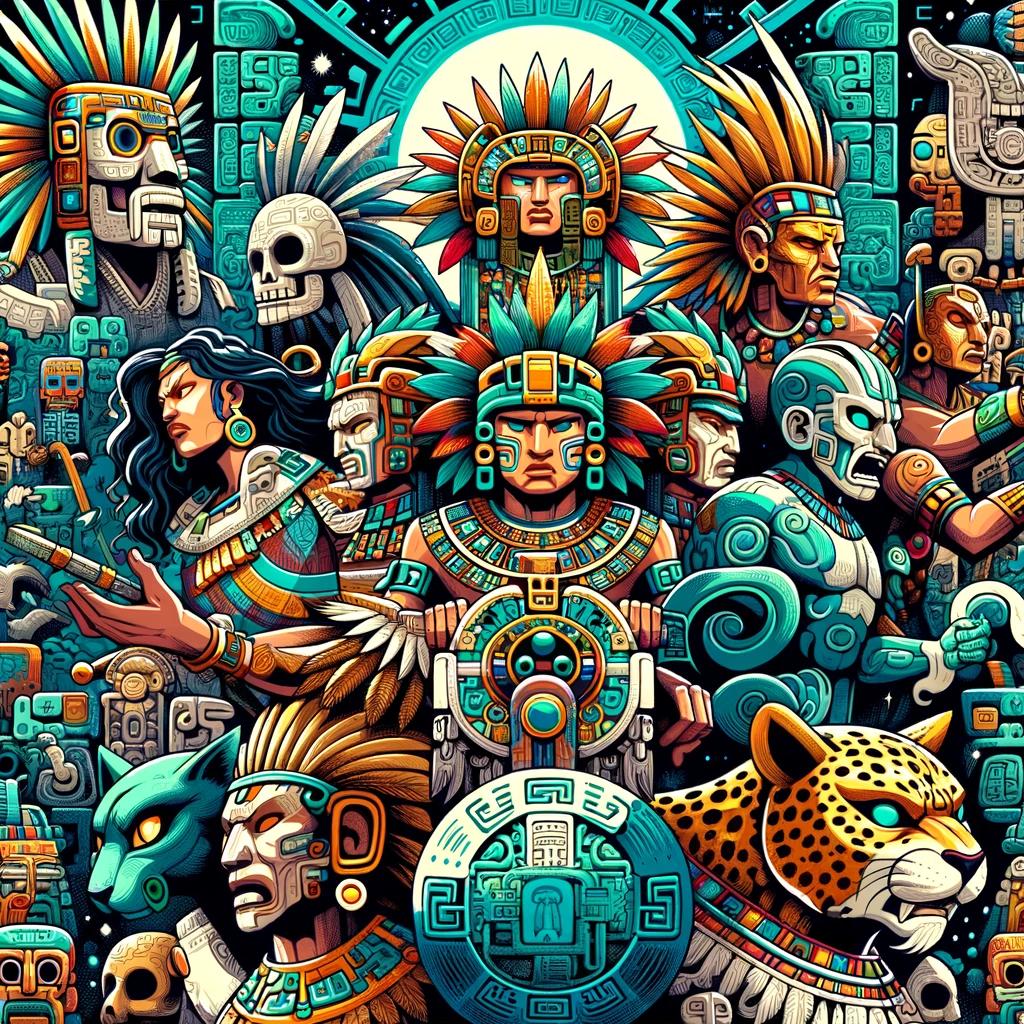‘Mayan Mythology Monsters: Unveiling the Legendary Creatures of Maya Civilization’
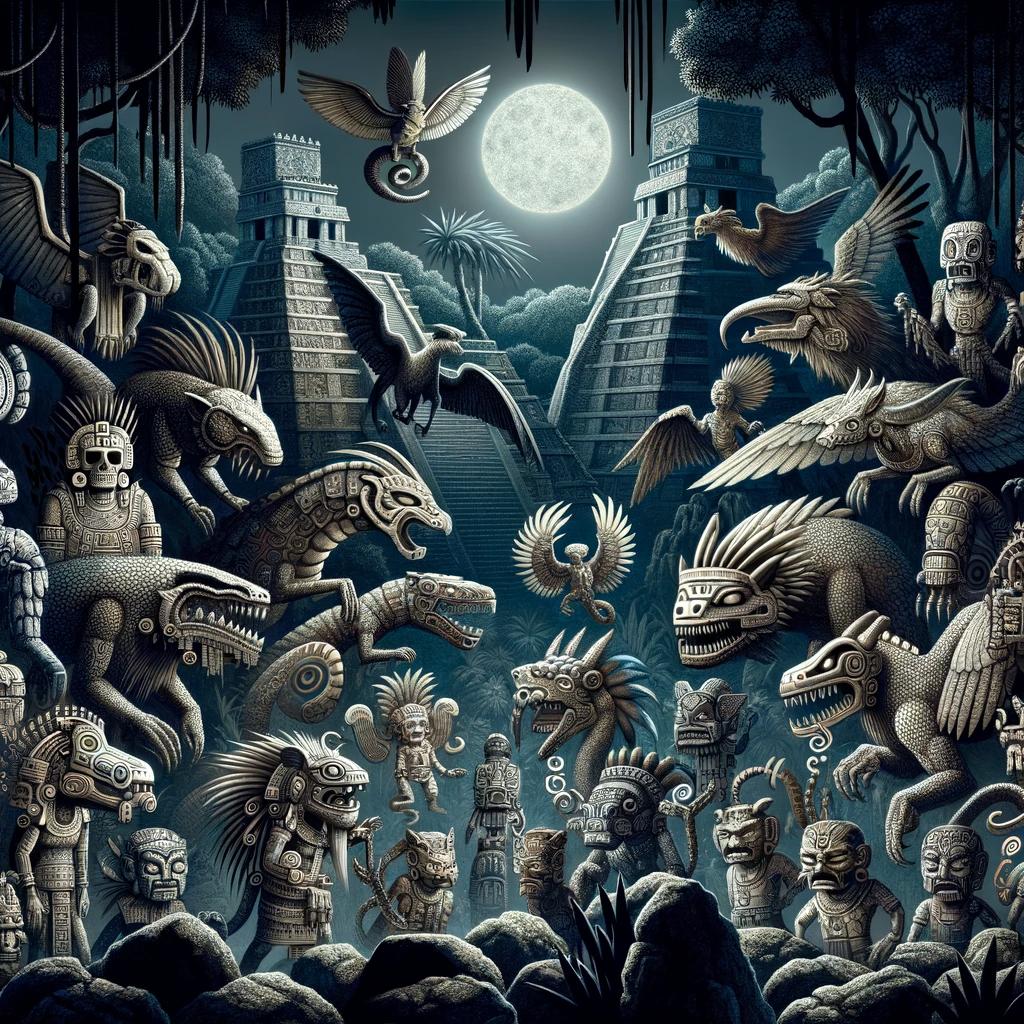
Mayan Mythology Monsters are a captivating aspect of the ancient Mayan civilization. From mischievous Alux to shapeshifting Huay Chivo, these legendary creatures have played integral roles in Mayan folklore.
Alongside them, powerful gods and goddesses like Chac, the rain god, and Ixchel, the moon goddess, have influenced Mayan beliefs. Exploring the vast mythological universe of the Mayans unveils the fascinating realms of creatures, gods, and their connections to the universe.
Additionally, we’ll examine the overlapping themes between Mayan and Mexican mythology, highlighting the influence of Mayan beliefs on Mexican folklore.
Exploring Mayan Mythology
Mayan Mythology is a rich and fascinating aspect of the ancient Mayan civilization, offering insights into their beliefs, culture, and worldview. This section delves into the origins of Mayan Mythology and explores key concepts that form the foundation of this intricate belief system.
Origins of Mayan Mythology
The roots of Mayan Mythology can be traced back to the ancient Mayan civilization, which flourished in Mesoamerica from approximately 2000 BCE to the 16th century CE. The Mayans lived in the regions that now encompass modern-day Mexico, Guatemala, Belize, El Salvador, and Honduras.
The origins of Mayan Mythology are deeply intertwined with the Mayan creation myth, which tells of the formation of the cosmos and the birth of the gods and goddesses. These myths were passed down through generations, orally transmitted and later recorded in codices and inscriptions.
Key Concepts in Mayan Mythology
Mayan Mythology revolves around several key concepts that shape the understanding of the Mayan cosmos and the role of gods, humans, and supernatural beings within it. These concepts include:
- The Sacred Calendar: The Mayans had a complex system of calendars that helped them navigate various aspects of their lives, including agricultural cycles, religious ceremonies, and astrological predictions.
- The Popol Vuh: This sacred Mayan text recounts the mythical history and cosmology of the Mayan civilization.
It contains stories of the Hero Twins, creation myths, and the exploits of the gods and goddesses.
- Divine Kingship: The Mayans believed in the divine status and lineage of their rulers, who were seen as intermediaries between the human and divine realms.
The king’s role included performing rituals, ensuring agricultural prosperity, and maintaining cosmic harmony.
- Rituals and Offerings: Mayan religious practices involved elaborate ceremonies, offerings, and sacrifices to appease the gods and maintain harmonious relationships with the supernatural realm.
These rituals played a crucial role in Mayan society and were often conducted by priests and priestesses.
By exploring these origins and key concepts, we can gain a deeper understanding of the complex and intriguing world of Mayan Mythology.
Mayan Mythology Monsters
Mayan Mythology Monsters are an intriguing aspect of the ancient Mayan civilization. Let’s explore some of the fascinating creatures that feature prominently in Mayan folklore:
Overview of Mayan Mythological Creatures
Mayan mythology is rich with a diverse array of mythological creatures.
These creatures play significant roles in the stories and beliefs of the Mayan civilization. From mischievous aluxes to shape-shifting naguals, these creatures captivate the imagination and offer insights into the Mayan worldview.
Alux: Mischievous Creatures of Mayan Folklore
Aluxes are mythical creatures believed to be guardians of the fields, forests, and caves in Mayan mythology. These mischievous beings are known to cause trouble but can also bring luck to those who treat them with respect.
Discover the intriguing tales surrounding these unique creatures.
Huay Chivo: The Legendary Shapeshifting Creature
Huay Chivo, a legendary creature in Mayan folklore, is said to possess the ability to shapeshift into various forms. Explore the stories and legends associated with this enigmatic creature and uncover the symbolism behind its shape-shifting abilities.
Moon Rabbit: A Lunar Symbol in Mayan Mythology
In Mayan mythology, the Moon Rabbit holds great significance as a lunar symbol. Dive into the mythology surrounding the Moon Rabbit and its connection to the lunar cycle and fertility in Mayan culture.
Discover the role this gentle creature plays in Mayan folklore.
Nagual: Shape-Shifting Guardians in Mayan Beliefs
The concept of the Nagual, shape-shifting guardians, is deeply rooted in Mayan beliefs. Uncover the intriguing stories and cultural significance of these mystical creatures, which were believed to possess transformative powers and protect individuals in both human and animal forms.
Tata Duende: The Enigmatic Mayan Forest Guardian
Tata Duende, the forest guardian in Mayan mythology, is an enigmatic creature often depicted as a short old man with backward-facing feet. Delve into the legends surrounding Tata Duende and explore his role as a protector of the forest and guardian of its treasures.
Vision Serpent: The Sacred Serpent of Mayan Mythology
The Vision Serpent holds a sacred place in Mayan mythology, representing divine communication, knowledge, and the connection between the earthly and celestial realms. Discover the symbolism and significance of this mythical serpent in Mayan culture and its role in rituals and ceremonies.
Xtabay: The Seductive Female Spirit of Mayan Legends
Xtabay, a seductive female spirit in Mayan legends, is known for luring men into the wilderness with her beauty and enchanting songs. Explore the tales of Xtabay and unveil the cultural beliefs and cautionary themes associated with this captivating yet dangerous Mayan mythological figure.
Mayan Mythology Gods and Goddesses
In Mayan mythology, a rich pantheon of gods and goddesses played significant roles in shaping the ancient civilization’s beliefs and practices. This section provides an overview of the Mayan mythological deities, highlighting some prominent figures.
Overview of Mayan Mythological Deities
The Mayan pantheon consisted of a diverse array of gods and goddesses, each associated with specific aspects of life, nature, and cosmic phenomena. These deities were revered and worshipped by the Mayan people, who sought their divine favor and guidance.
Chac: The Mayan God of Rain and Thunder
Chac, also known as Chaac, held a vital role in Mayan mythology as the god of rain and thunder. He was associated with fertility, agricultural abundance, and the life-giving rains that sustained the crops.
Mayan farmers depended on Chac’s blessings for productive harvests, and rituals and offerings were dedicated to appease and honor him.
Ixchel: The Moon Goddess of Fertility and Medicine
Ixchel, often depicted as a youthful woman wearing a headdress of the crescent moon, was the prominent moon goddess in Mayan mythology. She presided over fertility, childbirth, and medicine.
Mayan women sought her assistance in matters of reproductive health, and she was revered as the patroness of healing and herbal medicine.
Ah Puch: The Terrifying Mayan God of Death
Ah Puch was the fearsome god of death in Mayan mythology, often depicted as a skeletal figure with sharp fangs and a decaying appearance.
He ruled over the realm of the dead, known as Xibalba, and was associated with destruction and decay. Mayan rituals and offerings were performed to appease Ah Puch and ensure the safe passage of souls to the afterlife.
Itzamna: The Supreme God of the Mayan Pantheon
Itzamna held the position of the supreme god in the Mayan pantheon. He was associated with creation, wisdom, and divine knowledge. Itzamna was often depicted as an elderly man with a long beard and a wrinkled face, symbolizing his wisdom and guidance.
Mayan priests and rulers sought his favor and guidance for important decisions and rituals.
Mayan Mythology and the Universe
In Mayan culture, the creation myth holds significant importance, shedding light on the origins of the universe. According to Mayan beliefs, the universe was shaped through a series of divine events and the actions of powerful gods and goddesses.
Creation Myth in Mayan Culture
The Mayans believed that the world was created by gods and goddesses who existed before the creation of human beings. According to their creation myth, the universe was born from the primordial sea and the sky.
The gods shaped the land, plants, animals, and humans using different materials such as mud, maize dough, and wood. These materials symbolized the connection between the divine and the earthly realms.
The Role of Mayan Gods in Shaping the Universe
In Mayan mythology, gods played a vital role in shaping the universe and maintaining its order. Each god had their own domain of influence, whether it was the rain, sun, moon, or agriculture.
The actions of these gods were believed to bring forth natural phenomena, such as rainstorms, droughts, eclipses, and the cycles of day and night. The Mayans attributed both positive and negative events to the influence of their gods.
Cosmology and Astronomy in Mayan Mythology
The Mayans had a deep understanding of cosmology and astronomy, which played a significant role in their mythology. They developed complex astronomical calendars and observed celestial bodies with great precision. The movements of the sun, moon, and stars were believed to be closely linked to the actions of the gods and held symbolism in their mythological narratives.
The Mayans believed that by understanding the celestial events and aligning their actions with the cosmic cycles, they could maintain harmony with the gods and ensure the continuation of the universe.
Monsters and Creatures in Mexican Mythology
In Mexican mythology, there are several monsters and creatures that have overlapping themes with Mayan mythology. These fascinating beings reflect the rich cultural heritage and ancient beliefs of the Mexican people.
Let’s explore some of the most notable creatures in Mexican folklore.
Overlapping Themes in Mayan and Mexican Mythology
Mayan and Mexican mythology share common themes and creatures due to the historical and cultural connections between the two civilizations. Both mythologies have creatures associated with nature, spirits, and deities that play significant roles in the stories and beliefs of both cultures.
These shared themes demonstrate the continuity and influence of Mayan mythology on Mexican folklore, showcasing how ancient traditions have shaped the narrative and cultural identity of Mexico.
The Influence of Mayan Mythology on Mexican Folklore
Mayan mythology has had a profound impact on Mexican folklore, contributing various creatures and characters to the rich tapestry of Mexican mythological tales.
Many of the Mayan monsters and deities, such as the Nagual and Xtabay, have become prominent figures in Mexican folklore.
These myths and legends address universal themes of good, evil, transformation, and the symbiotic relationship between humans and the natural world.
They continue to be passed down through generations, helping to preserve the cultural heritage and ancestral wisdom of the Mexican people.
By exploring the monsters and creatures of Mexican mythology, we gain a deeper understanding of the interconnectedness between Mayan and Mexican beliefs, as well as the enduring power of these captivating tales in shaping the cultural fabric of Mexico.
.

